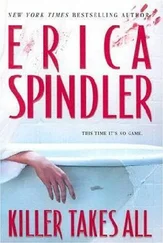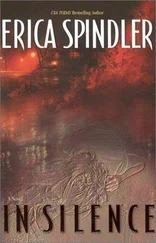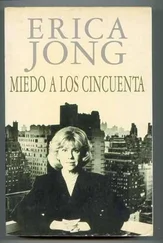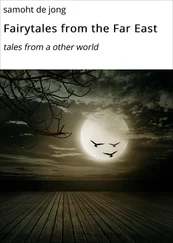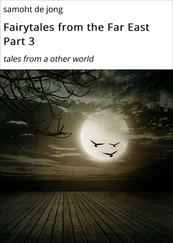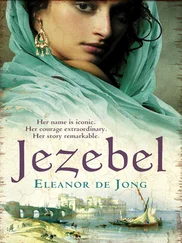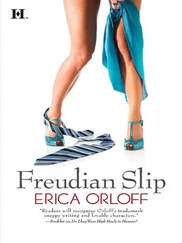I was in a frenzy of outrage and moral indignation. I sat down at my desk and scrawled a furious column about honesty, dishonesty, and almighty History. I asked for truth above beauty, History above beauty, and honesty above all. I fumed and sputtered and spouted. I pointed to the offensive oak-tag patches in the guidebook as examples of all that was odious in life and art. They were like Victorian fig leaves on Greek sculptures, like nineteenth-century clothes painted over erotic frescoes of the quattrocento. I alluded to the way Ruskin had burned Turner’s paintings of the Venice brothels, how Boswell’s great-grandchildren had tried to obliterate the bawdy parts of his journals, and compared these to the way the Germans tried to deny their own history. Such sins of omission! And it was all so pointless! Nothing human was worth denying. Even if it was unspeakably ugly, we could learn from it, couldn’t we? Or could we? I never questioned that at all. The truth-I was certain-would make us free.
Next morning I typed the thing in a two-fingered fury and raced downtown to give it to Horst. I dropped it off quickly and left. Three hours later he called me.
“You really want me to translate this?” he asked.
“Yes,” and I began with a burst of outrage about how he’d promised not to censor me.
“I will keep my word,” he said, “but you’re young and you really don’t understand the Germans.”
“What do you mean I don’t?”
“The Germans loved Hitler,” he said quietly. “If they were to be honest, you wouldn’t like what you would hear. But they are not honest. For twenty-five years they have not been honest. They never cried for their war dead and they never cried for Hitler. They swept it all under the rug. Even they don’t know their real feelings. If they were honest, you would hate it worse than their hypocrisy.”
Then he began to tell me about what it was like to be a press correspondent under Hitler. It was a quasi-military position and all news was censored from above. The press corps knew plenty of things which were kept from the general public and they deliberately concealed them. They knew about death camps and deportations. They knew and they still cranked out propaganda.
“But how could you do it?” I shouted.
“How could I not do it?”
“You could have left Germany, you could have joined the Resistance, you could have done something!”
“But I was not a hero, and I didn’t want to be a refugee. Journalism was my profession.”
“So what!”
“All I am saying is that most people are not heroes and most people are not honest. I don’t say I’m good or admirable. All I am saying is that I am like most people.”
“But why?” I whined.
“Because I am,” he said. “No reason.”
I had no answer to that and Horst knew it. I began to wonder then if I too was like most people. Would I have been more heroic than he? I thought of how long it had taken me to stop writing clever columns about ruined castles, and neat little sonnets about sunsets and birds and fountains. Even without fascism, I was dishonest. Even without fascism, I censored myself. I refused to let myself write about what really moved me: my violent feelings about Germany, the unhappiness in my marriage, my sexual fantasies, my childhood, by negative feelings about my parents. Even without fascism, honesty was damned hard to come by. Even without fascism, I had pasted imaginary oak-tag patches over certain areas of my life and steadfastly refused to look at them. I decided then that I was not going to be self-righteous with Horst until I had learned to be honest with myself. Perhaps our sins of omission were not equal, but the impulse in both cases was the same. Unless I could produce some proof of my own honesty in writing, what right had I to rage at his dishonesty?
The article was printed as I wrote it. Horst translated faithfully. I thought the town of Heidelberg would go up in smoke, but writers greatly exaggerate the importance of their work. Nothing happened. A few of my acquaintances made ironic remarks about how involved I tended to get in things. That was all. I wondered if anyone even read Heidelberg Alt und Neu. Probably not. My columns were like sending letters during a postal strike or keeping a secret journal. I felt I was blowing history wide open, but nobody even blinked. All that Sturm und Drang came down to silence. It was almost like publishing poetry.
5 A Report from the Congress of Dreams or Congressing
I’m Isadora. Fly me.
– National Airlines
Dr. Goodlove is chairing the meeting. In the damp cellar of the university, in a windowless basement amphitheater with clattery wooden seats, Adrian has put on his official English manners (and his same old holey shirt) and is enunciating syllables (English) to the candidates (polyglot) scattered through the tiers of seats.
He looks like Christ at the Last Supper. To the right of him and to the left of him are somberly dressed analysts in ties and jackets. He is earnestly leaning toward the microphone, sucking his pipe, and summing up the earlier portion of the meeting-which we missed. One bare foot swings back and forth toward the audience while its tattered sandal rests under the table.
I indicated to Bennett that I want to sit in the back row, near the door-and as far as possible from the heat generated by Adrian. Bennett gives me a sour look implying that that doesn’t suit him and marches to the front of the room where he sinks down next to some henna-haired candidate from Argentina.
I sit in the last row staring at Adrian. Adrian stares back at me. Me sucks on his pipe as if he were sucking on me. His hair falls over his eyes. He brushes it back. My hair falls over My eyes. I brush it back. He drags on his pipe. I drag on his phantom prick. Little rays seem to connect our eyes-as in some cosmic comic. Little heat waves seem to connect our pelvises as in some pornographic comic.
Or maybe he isn’t looking at me at all?
… of course there is still the problem of the candidate’s utter dependency on his analyst,” the analyst to the left of Adrian is saying. Adrian grins at me.
“… utter dependency tempered only by the candidate’s reality-testing which, considering the Kafkan atmosphere of the Institute, may, indeed, be quite poor…”
Kafkan? I always thought it was Kafkaesque.
I must be the first case of a twenty-nine year old’s menopause on record. I am having a hot flash. My face feels as if it’s turned bright pink, my heart is racing like the motor of a sports car, my cheeks feel as though they’ve been pricked by tiny needles for an acupuncture operation. The entire lower half of my body has liquefied and is slowly dribbling down on the floor. It’s no longer just a question of creaming in my pants-I’m dissolving.
I reach for my notebook and start scribbling.
“My name is Isadora Zelda White Stollerman Wing” I write, “and I wish it were Goodlove.”
I cross that out.
Then I write:
Adrian Goodlove
Dr. Adrian Goodlove
Mrs. Adrian Goodlove
Isadore Wing-Goodlove
Isadore White-Goodlove
Isadora Goodlove
A. Goodlove
Mrs. A. Goodlove
Dame Isadora Goodlove
Isadora Wing-Goodlove, M.B.E.
Sir Adrian Goodlove
Isadora and Adrian Goodlove
wish you
an
ecstatic
Christmas
Ghanuk a
Winter Solstice
Isadora White Wing and Adrian Goodlove
are absolutely
freaked out
to announce
the birth of their
love-child
Sigmunda Keats
Whitewing-Goodlove
Isadora and Adrian
invite you
to
a housewarming
at
their new digs
35 Flask Walk
Hampstead
Читать дальше
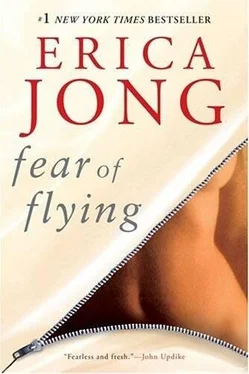
![Brian Jacques - [Flying Dutchman 01] - Castaways of the Flying Dutchman](/books/128851/brian-jacques-flying-dutchman-01-thumb.webp)


